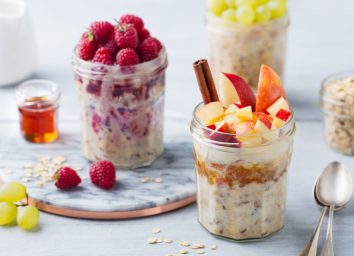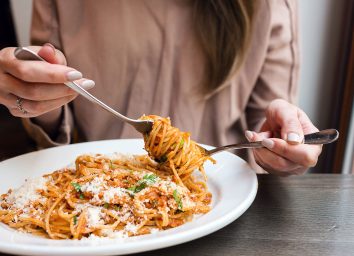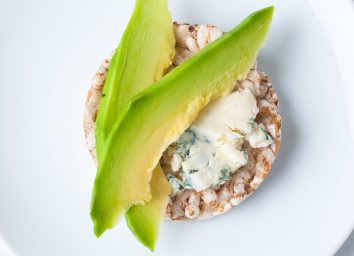20 Healthy Eating Habits to Lose Weight Right Now

Imagine a group of scientists in a food laboratory on a dark and stormy night and one of them says they’ve created the superfood that will end disease as we know it! All the other food scientists gather around. Such excitement! Soon, the food additive is being blended into everything, from cookies to fast-food burgers, as scientists are certain the superfood will help us all lose weight and live longer and healthier.
Now, imagine that years later, we discover the superfood is, in fact, a monster food—an additive so toxic that, over time, it wildly increases our risk for everything from heart disease to stroke to cancer to obesity. And it’s already inside us all!
Sound like a made-for-TV movie? It’s not. It’s the story of trans fat, a dangerous, man-made lipid found in margarine and shortening that, for a little while at least, was believed to be healthier than regular fats. We bought the lie until the mid-’90s when a study in the American Journal of Clinical Nutrition indicted trans fats for no fewer than 30,000 annual deaths. The worst part: They’re still in our food today!
Understanding the nuances of nutrition is hard—so hard that scientists are constantly learning more new information. That’s why the best way to lose weight is to ignore trends and fly-by-night advice, and instead, focus on healthy eating strategies. Develop healthy habits, stick to them, and no matter what nutritional blunders you might make, you’ll still keep yourself on the road to weight loss and a slim physique. Here, we rounded up the 20 best fat-fighting habits. Commit them to your daily routine and you’re guaranteed to drop excess pounds. Indulge and enjoy. And while you’re making healthier changes, be sure you’re stocked up on The 7 Healthiest Foods to Eat Right Now.
Eat an Early Dinner

Experts have gone back and forth on whether eating late leads to weight gain, but a study published in the journal Obesity found a solid link. Northwestern University researchers looked at the eating and sleeping patterns of 52 adults and found that those who regularly ate after 8 p.m. ingested the most calories and carried the most body fat. An easy-to-follow rule of thumb: Stop eating three hours before you hit the sack. Then, while you sleep, your body is better primed to burn fat instead of creating more.
Weigh Yourself Daily
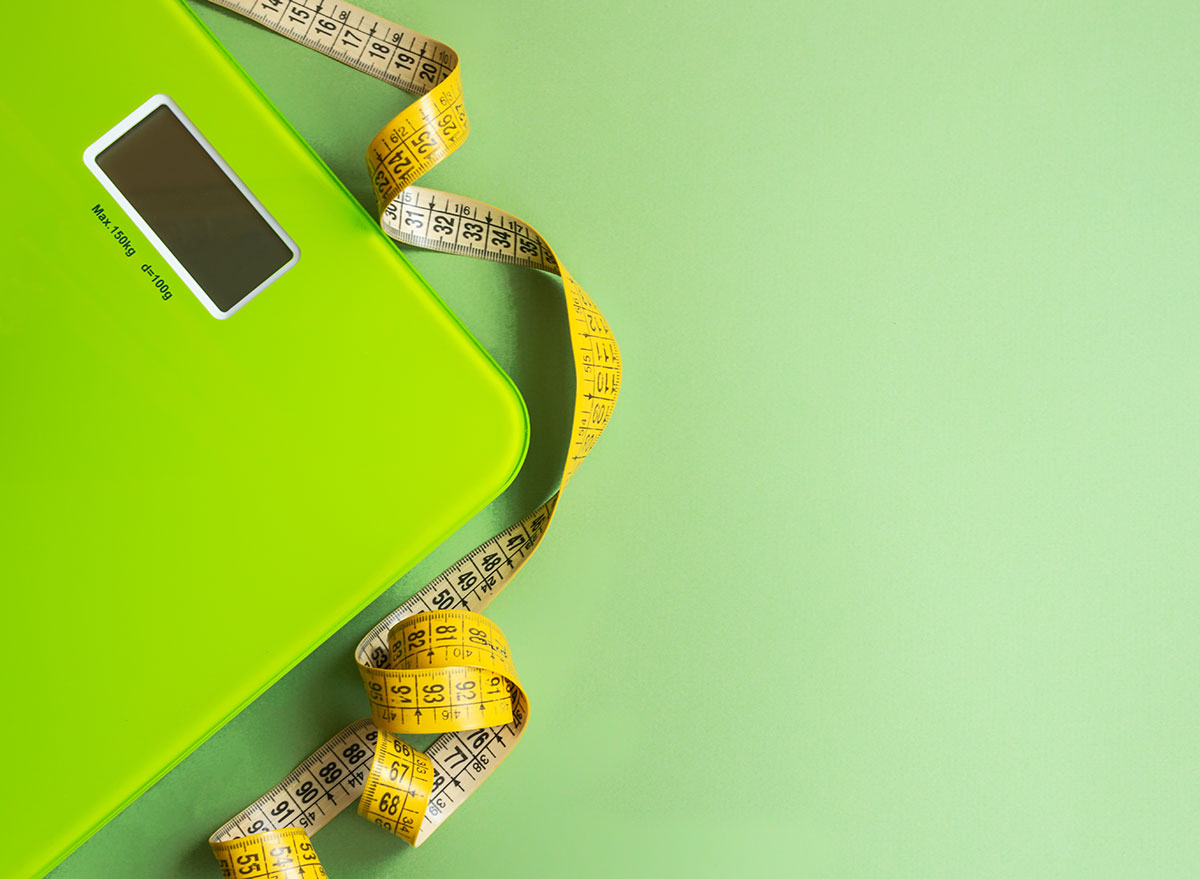
Stepping on the scale can be disheartening, particularly after an indulgent weekend (“I gained five pounds since Friday?!”). But it’s best to face your fears because as it turns out, weighing yourself regularly can actually help you stay slim. Scientists at the University of Minnesota discovered that people who got on the scale every day lost twice as much weight as those who weighed themselves less often. The assumption: Monitoring your weight keeps your mind on your health and prevents weight denial. In fact, stepping off the scale for too long might be one of the reasons you’re gaining back the weight.
Eat a Boring Diet
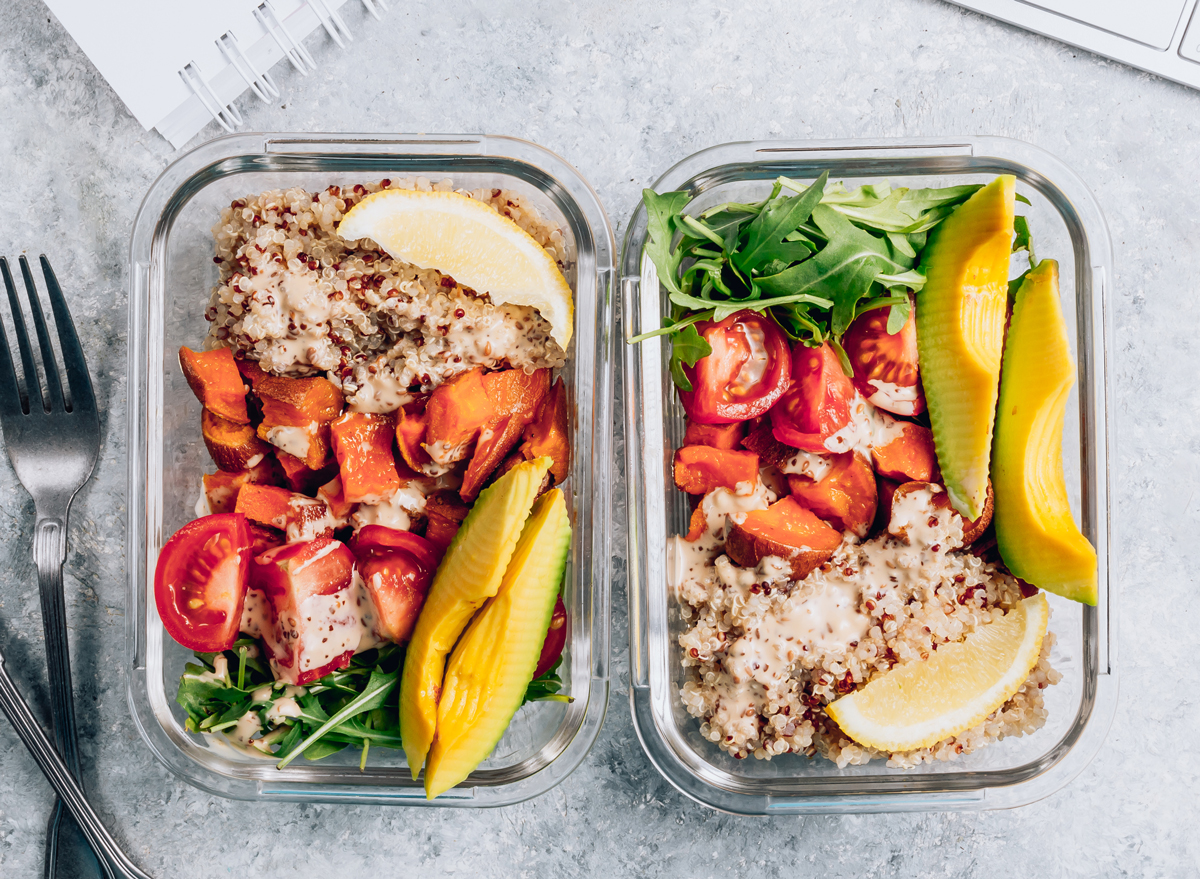
A study in the American Journal of Clinical Nutrition discovered that people who ate macaroni and cheese every day took in significantly fewer calories than those who ate the cheese-covered noodles only once a week. The reason: The novelty of new foods drives us to consume more, so by removing the novelty, we feel fuller, faster. We’re not suggesting you choose one meal and eat it every day for the rest of your life, but the more weight-loss-friendly daily routines you establish, the more your belly will shrink. Start with lunch: If you find yourself scratching your head every day when the clock strikes noon, you’ll end up eating impulsively and taking in more calories. Instead, pick something healthy, like a soup-and-salad combo, and eat it every day.
Reward Yourself

Once you’ve established a healthy routine, you need to establish a reward system. Think of those pioneers who traveled the Oregon Trail. It’s a trip known best for being rife with danger, but it was also rife with sluggish tedium. Early American settlers wouldn’t have completed the journey without the proverbial promise of milk and honey at the end, and neither will you stay the course of a repetitive diet without something more closely resembling literal milk and honey. A great way to stick to a low-calorie diet without breaking down into rebellious binge-mode is to reward yourself with a small dessert every day. Pick a food you love, and at the end of every day, reward yourself with a portion of about 200 calories. But remember—you only get the reward if you deserve it.
Get Educated and Find a Support Group

A study in the Journal of Health Psychology found that being exposed to nutrition and exercise advice and having support from friends led people to make smarter diet and lifestyle choices. To ensure you stay focused on maintaining a healthy weight, subscribe to a health-related magazine or frequent a nutrition-focused blog.
Looking for more helpful tips? Sign up for our newsletter to get daily recipes and food news in your inbox!
Eat Breakfast

A study from the American Journal of Epidemiology found that people who skipped breakfast were 4.5 times more likely to be obese. They don’t call it the most important meal of the day for nothin’—eating a nutritious morning meal jumpstarts your metabolism and prevents you from overindulging throughout the day. For optimal weight-loss results, choose a breakfast dish with a healthy balance of protein and fiber, like eggs with fruit and whole-wheat toast.
Take Snack Breaks

Snacking sometimes gets a bad rap, but packing healthy snacks to nosh on throughout your day can actually keep you skinny. A study released by the Advances in Nutrition journal found that consuming high-fiber, high-protein snacks promotes weight loss. The reason: Healthy snacking keeps your blood sugar from spiking, preventing hunger pangs, cravings, and body fat storage. An ideal snack choice? Nuts. The balance of protein, fiber, and healthy fats is sure to keep you satisfied between meals.
Drink Water

Almost 60% of your body is water, which makes it vital to every important metabolic process. In one study of 173 overweight women, those who added 1 liter of daily water to their diets lost five extra pounds over the course of a year, and if you time it right, the effects can be even greater. When researchers from Virginia Tech had subjects drink two glasses of water before each meal, they found that those subjects lost 30% more body fat over 12 weeks. That said, making beverage blunders is one of the easiest ways to gain belly fat—as the average American drinks 450 sugar-loaded calories a day. Replace half of what you drink with water and you’ll save 23 pounds per year!
Order a La Carte
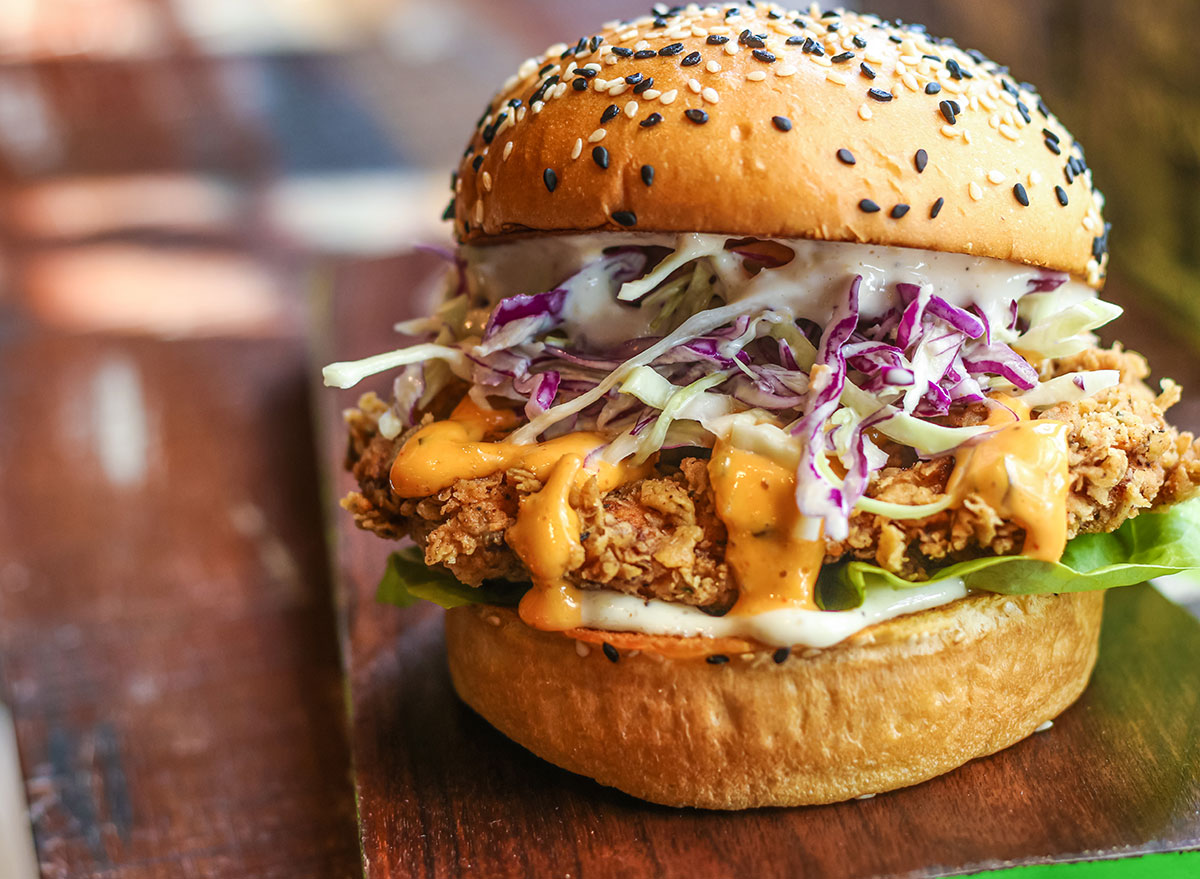
A study from the Journal of Public Policy & Marketing found that diners consume more calories when they order combo meals because they end up with more food than they want or need. Our stay-skinny advice: Resist the temptation of the almighty “value” meal and order a la carte items, like a modestly sized burger and a non-fried side dish. You’ll save both calories and cash.
Choose Whole Grains
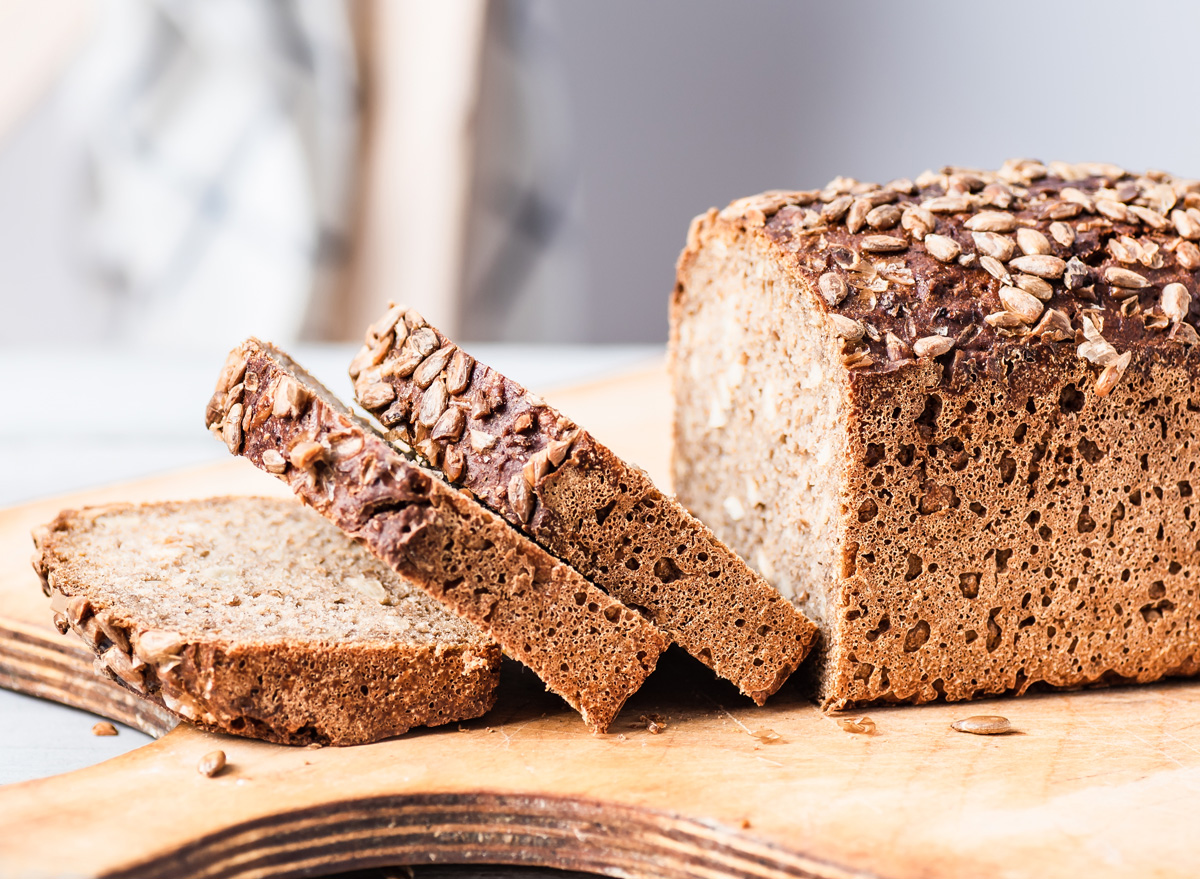
Choosing nutrient-rich whole grains over processed, white flour-based products can play a major role in keeping you lean. In a study published in the American Journal of Clinical Nutrition, researchers discovered that participants who added whole grains to their diets lost more belly fat than those who did not. One of the key weight-loss benefits of whole grains: Their healthy dose of fiber helps slow digestion, keeping you fuller longer. But don’t be fooled by “made with whole grain” labels. True whole grain products will list whole grains first on their ingredients list (think “whole wheat” flour instead of “enriched” or “bleached” flour).
Eat Spicy Food
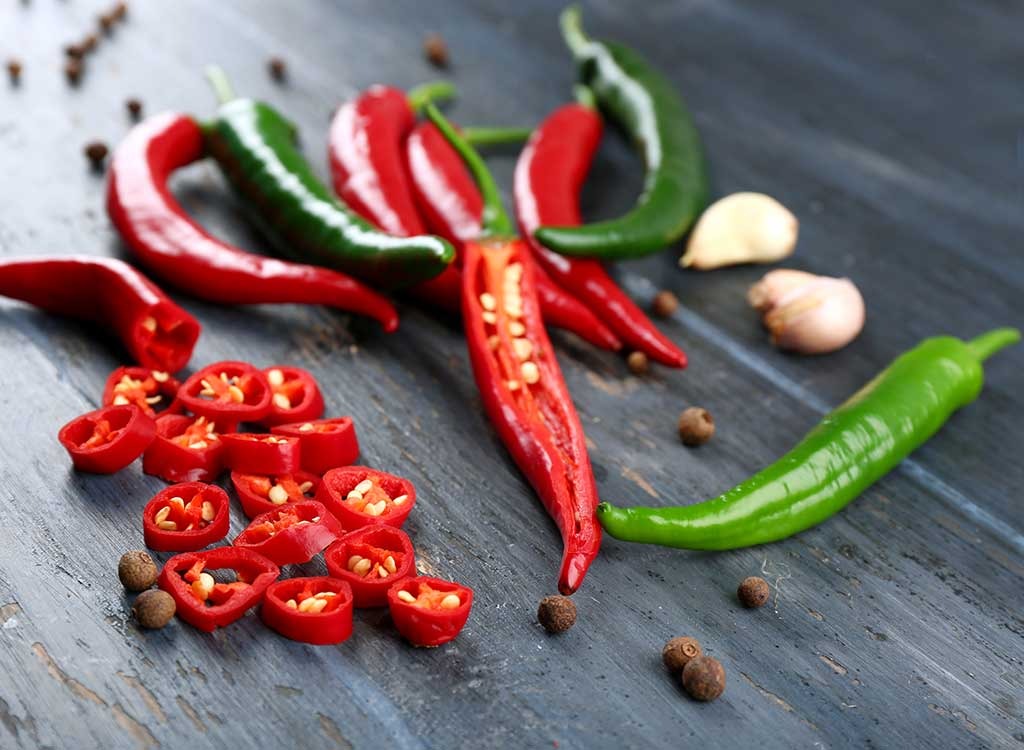
A 1999 study in the British Journal of Nutrition found that eating spicy foods may promote weight loss. Research participants who ate a spicy appetizer before a meal ate significantly less than those who consumed a non-spicy app. The explanation: A chemical compound called capsaicin, found in chili peppers, acts as an appetite suppressant. Capsaicin has also been shown to boost metabolism and fight inflammation. The takeaway: Routinely adding spicy ingredients like cayenne or red pepper to your meals is an easy, flavorful way to stay slim.
Sleep 7–8 Hours Each Night

Getting a good night’s sleep has been linked to a host of major health benefits, not the least of which is maintaining healthy body weight. In a study in the journal Sleep, participants who slept for fewer than six hours or more than eight hours each night gained significantly more weight than those who slept for six to eight hours. Lack of sleep has been shown to increase appetite, lower willpower, and bolster cravings for high-calorie foods. That might be why you find it so hard to resist those doughnuts in the break room.
Manage Stress

A study in the American Journal of Epidemiology found that dealing with work-, finance-, or relationship-related stress can lead to weight gain. When you stress, your body releases cortisol, a hormone that promotes abdominal fat storage. If you find yourself overwhelmed in your work or personal life, try incorporating stress-reducing activities into your day. Join a yoga class or go for a jog, and when you start to feel stress coming on, pause and take deep breaths.
Take the Stairs

Most of us are aware that formal exercise is a key component in maintaining a healthy weight, but simple choices like taking the stairs can be just as important if you want to stay trim. One Mayo Clinic study found that if you stand (instead of sit) for six hours a day, you can burn 5.5 pounds a year. Make the most of daily motion by also walking to lunch, parking at the back of the lot, or skipping email in favor of short walks to deliver messages to coworkers. (As a bonus, you’ll make your face more recognizable around the office.)
Chew Thoroughly
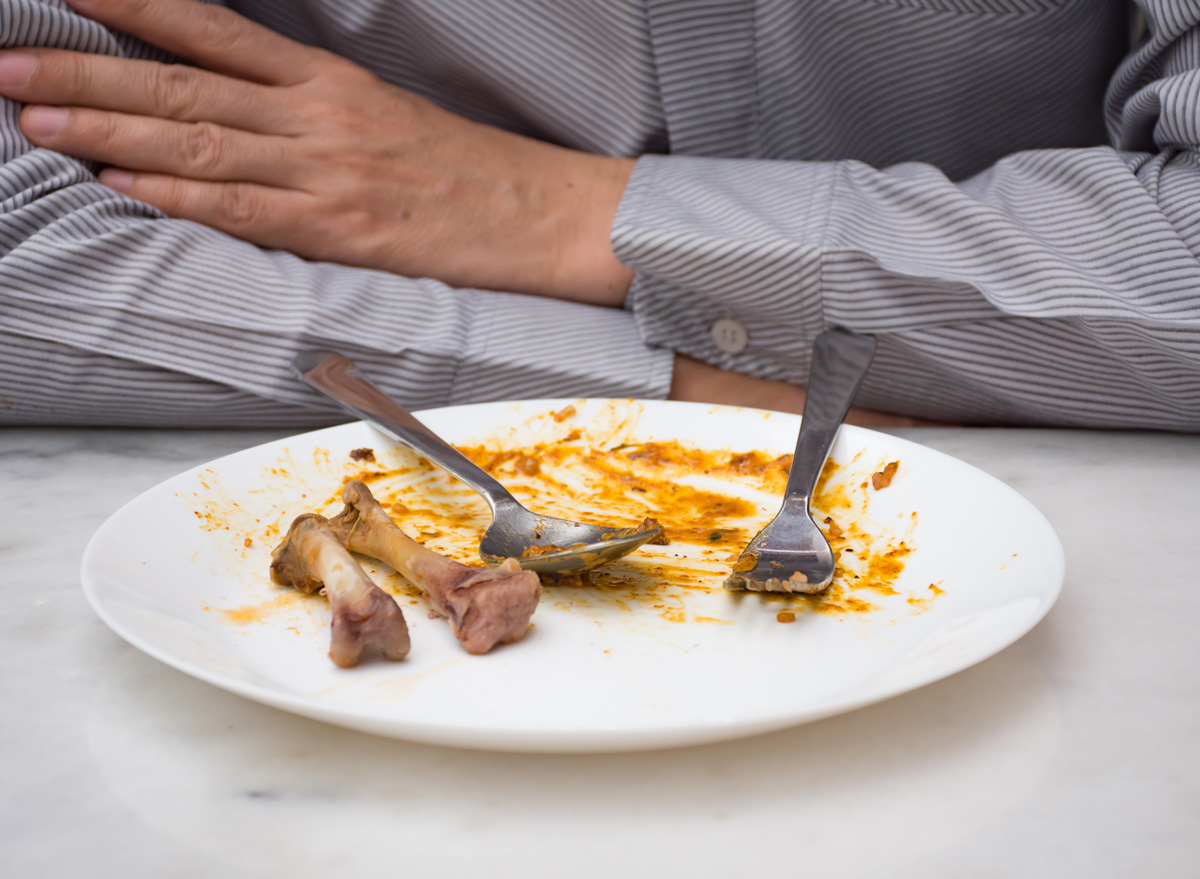
A study published in the American Journal of Clinical Nutrition found that chewing more and eating slowly caused participants to ingest fewer calories. According to the study’s researchers, the increase in chewing simultaneously lowered levels of appetite-stimulating hormones and increased levels of appetite-suppressing hormones. One way to make sure you chew your food thoroughly: Stop to eat. Eating on the go—in your car, for example—can lead you to quickly inhale a ton of calories before your body has time to let you know it’s full.
Walk After Meals

Taking a walk after dinner can help you lose weight, and not just because walking burns calories. According to one study in Medicine & Science In Sports & Exercise, light, post-meal exercise—like walking—can lower your triglycerides and prevent heart disease. Don’t have time for a walk, you say? Not a problem. As long as you keep moving after you eat, you will reap similar benefits. Even doing the dishes or completing other household tasks can help.
Keep Healthy Food on Hand
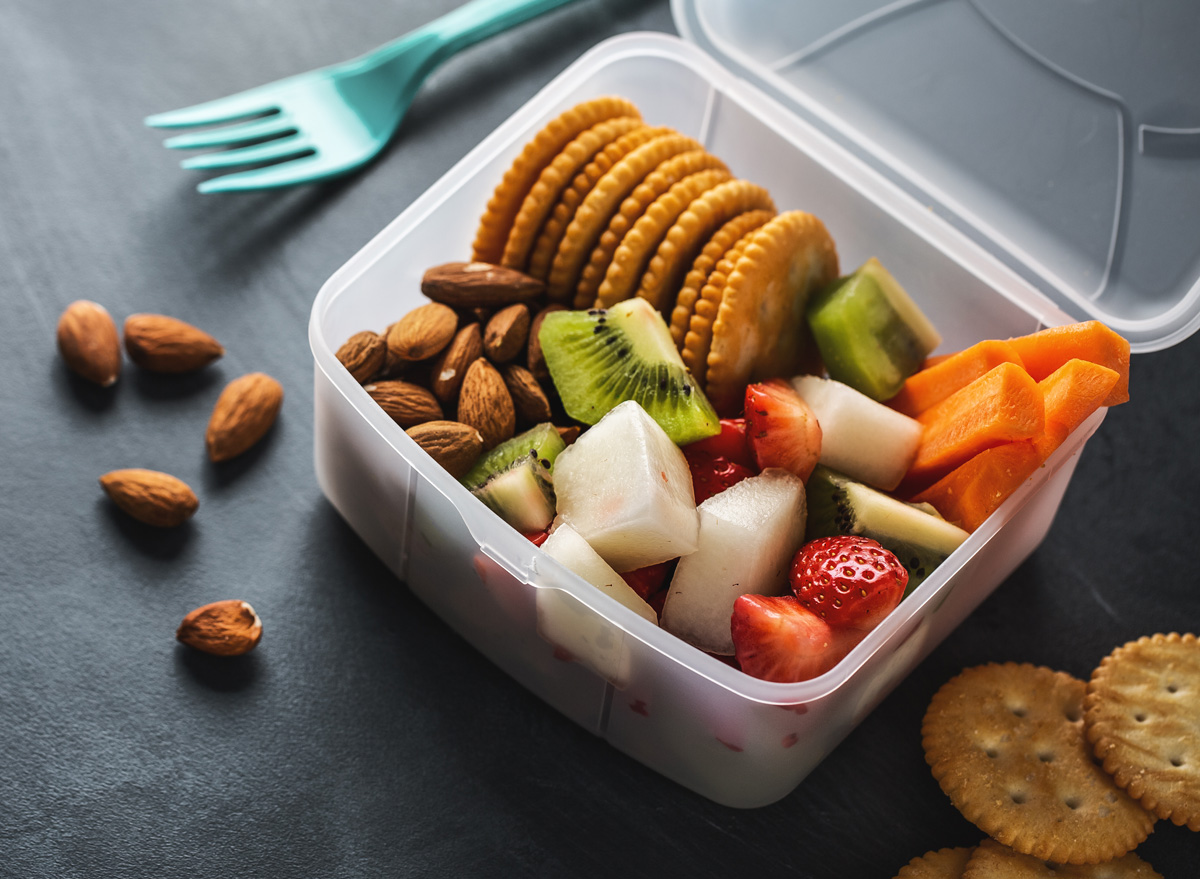
A great way to ensure you make nutritious food choices: Surround yourself with healthy options. Don’t use convenience as an excuse for a shameful diet. Keep fresh fruit on your kitchen counter, store healthy snacks like nuts in your desk at work, keep pre-washed, pre-cut vegetables in your fridge—whatever you have to do to make the healthiest choice the easiest choice, do it! You won’t feel deprived or hungry as the pounds are dropping away.
Learn to Take a Joke

A 2006 study in the International Journal of Obesity found that laughing for 15 minutes each day can help you burn 10 to 40 calories, depending on your body size and the intensity of your laughter. This adds up to about one to four pounds of fat lost per year. That may not sound like much, but there’s also been plenty of research linking happy people to all-around healthier lifestyles, and you, my friend, have an excuse to make that a part of your daily diet routine.
Eat Protein
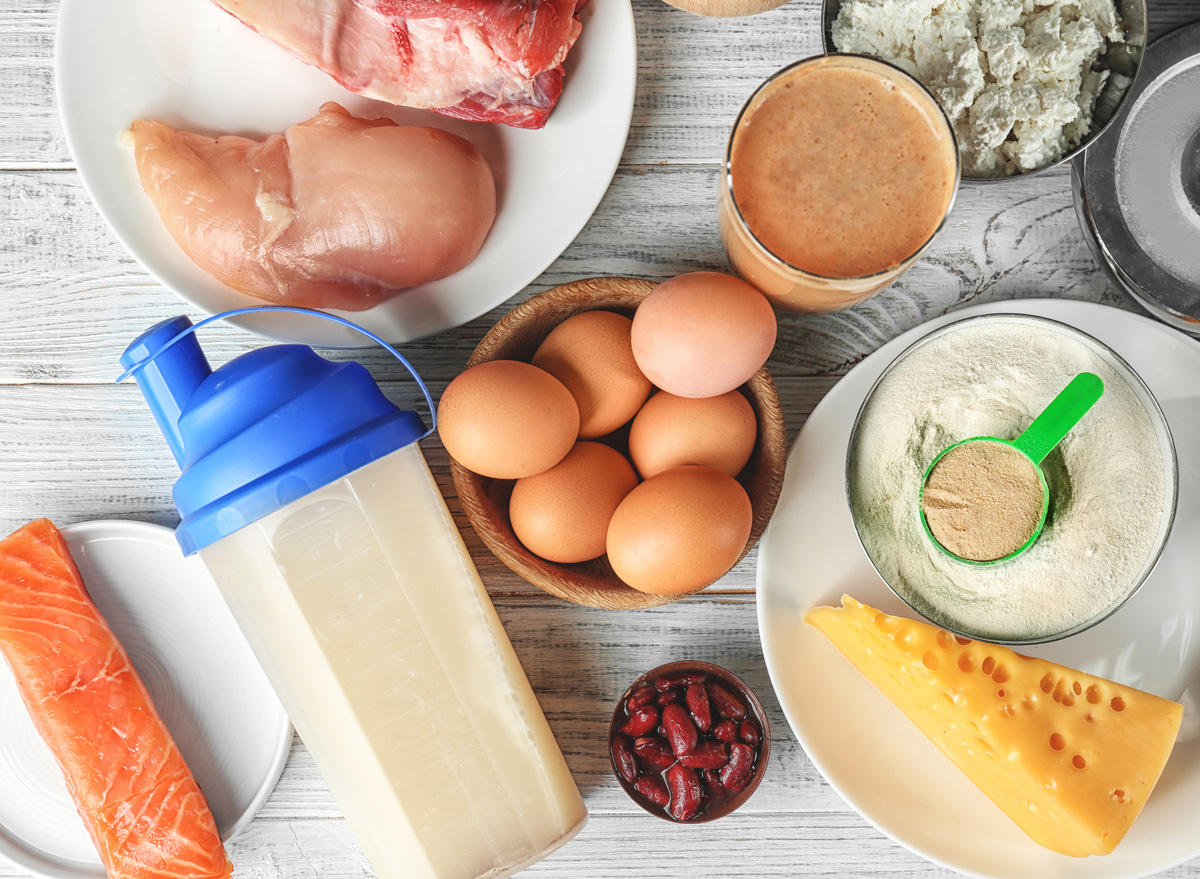
A study in Obesity Facts found that dieting participants who increased their protein intake lost 10% of their body weight. Eating protein increases lean muscle mass, which keeps your metabolism running on high—even when you’re resting. Protein also keeps you full, making you less likely to overeat. For maximum health and weight-loss benefits, aim to include protein in all of your meals and snacks. The best options? Lean protein sources like fish, eggs, lean meats, low-fat dairy products, and legumes.
Avoid Dinner Distractions

With laptops, smartphones, and iPads aplenty, we’ve become accustomed to round-the-clock entertainment. But your mealtime may be one time of day we should fight our addiction to amusement. Researchers at the University of Birmingham found that diners who were distracted at mealtime consumed significantly more calories than those who paid close attention to what they ate. One possible explanation: When you don’t pay attention to the meal you’re eating, your brain doesn’t fully register the experience. That leaves you less satisfied and more vulnerable to overeating.
